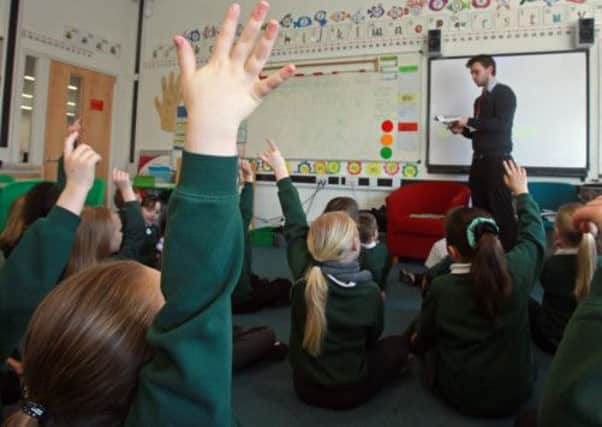EIS:Edinburgh council cuts may increase class size


Scotland’s largest teaching union said Edinburgh City Council’s cost-cutting proposals would remove millions from learning and teaching budgets in the capital.
Local association secretary Alison Thornton said: “The EIS is currently examining the budget proposals in depth and will consult with our members and with fellow trade unions to prepare a robust response.
Advertisement
Hide AdAdvertisement
Hide Ad“It is essential that teachers, support staff, parents and the wider community play an active part in the consultation process and make their views on these proposals very clear to their elected representatives on the City of Edinburgh Council.”
The EIS said the proposals could potentially remove the maximum class size target of 18 for P1 to P3 and the 20-pupil limit for S1/S2 English and Maths in some schools.
It also warned of reduced support for pupils with additional support needs and a threat to staffing levels in school libraries.
Councillor Paul Godzik, Edinburgh’s education convener, said: “We’ve sought to protect the core schools budget and devolved school management budget used by heads for the day-to-day running of schools - the proposed reduction is equivalent to just 0.6 per cent of the total Children and Families £390m budget.
“There is substantial funding coming through our Early Years Change fund to provide intensive support for families. We realise there are difficult decisions ahead but we are in a position where our budget is reducing quite considerably and savings have to be made.
“We are engaging extensively with the public on our proposals but if people think our priorities are wrong or that they will substantially affect services, we want to hear from them - this is a two-way dialogue. We have already held a meeting with the EIS union on our proposals.”